Dell EqualLogic PS6100XS review
Dell's 2U server boasts redesigned controllers, a new cache-to-flash feature, plenty of room to expand and an excellent price point.
Dell’s EqualLogic PS6100XS stands out from the IP SAN crowd thanks to its ease of use, expansion potential and excellent performance. Our tests show the appliance can deliver the high IOPS demanded by heavy duty applications and Dell’s pricing structure means we have no hesitation in recommending the PS6100XS.

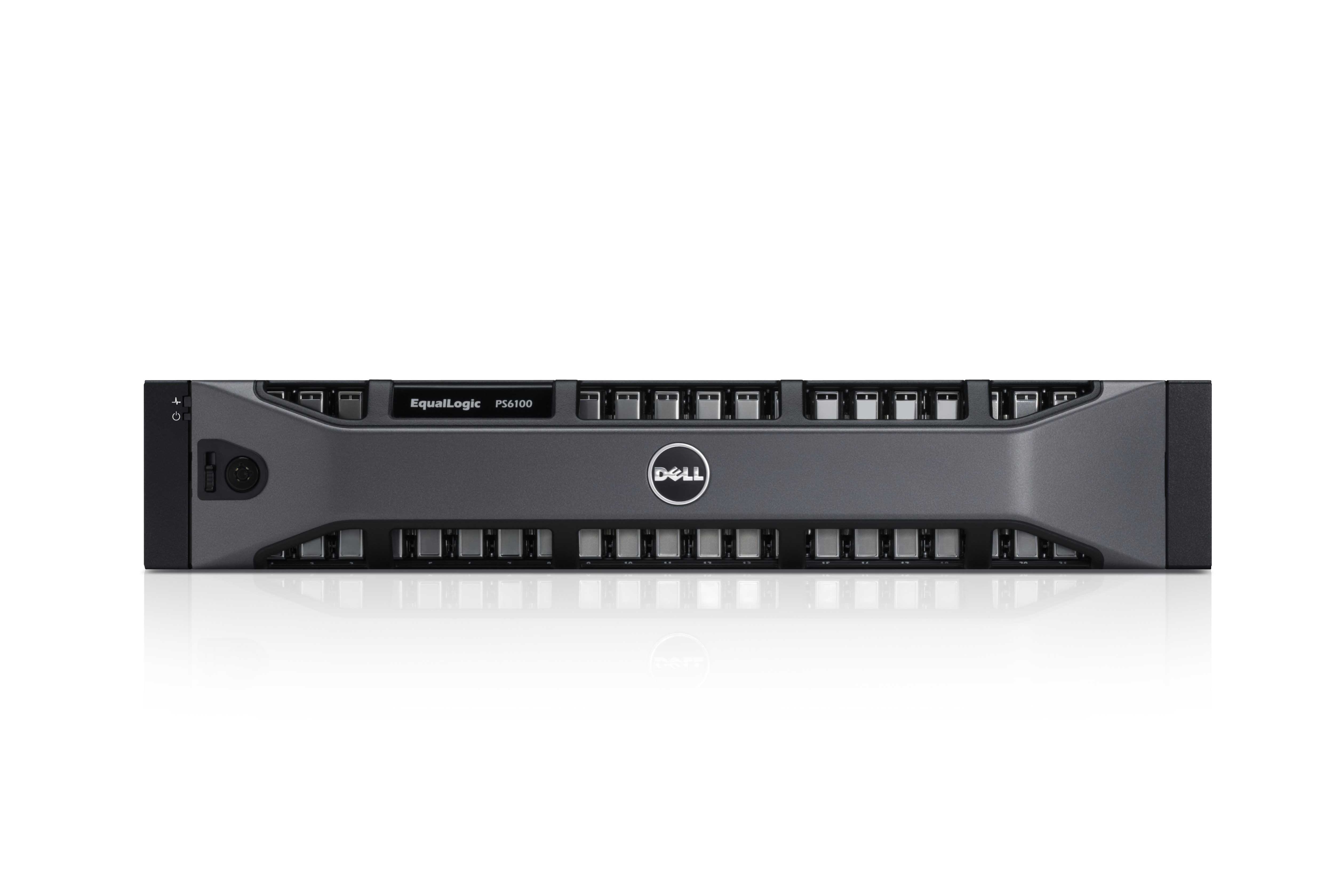
Dell PS6100 - Front
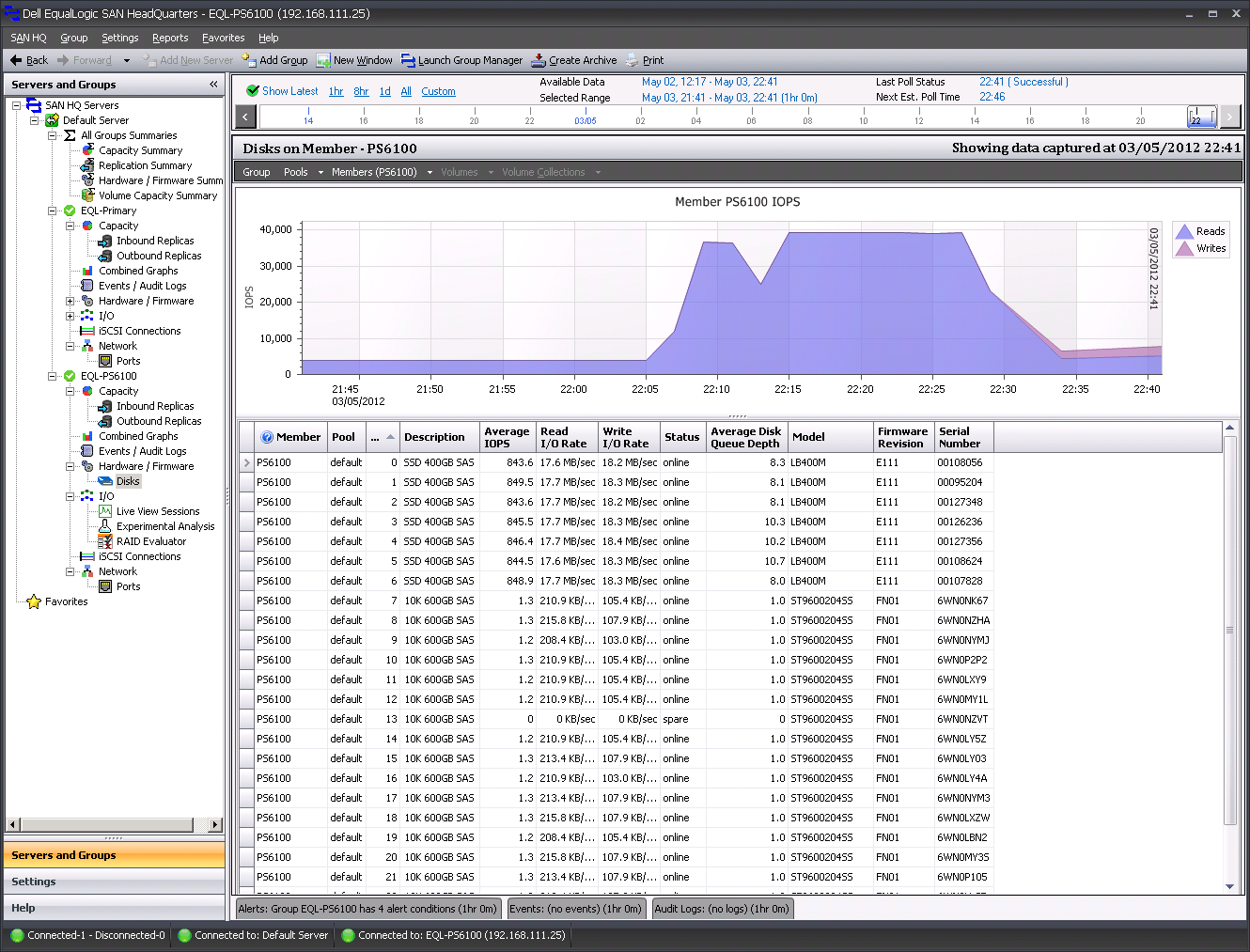
Dell PS6100 - Data tiering
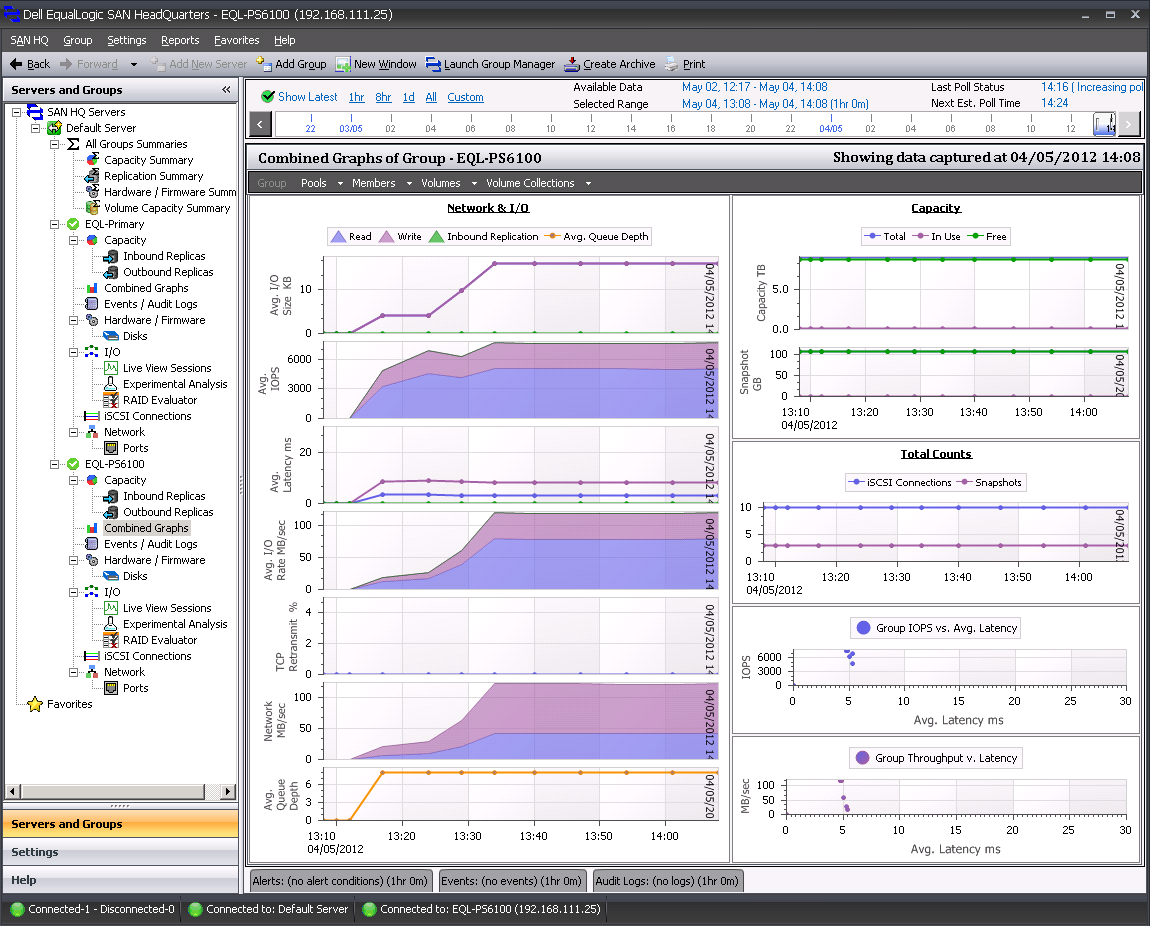
Dell PS6100 - SAN HQ
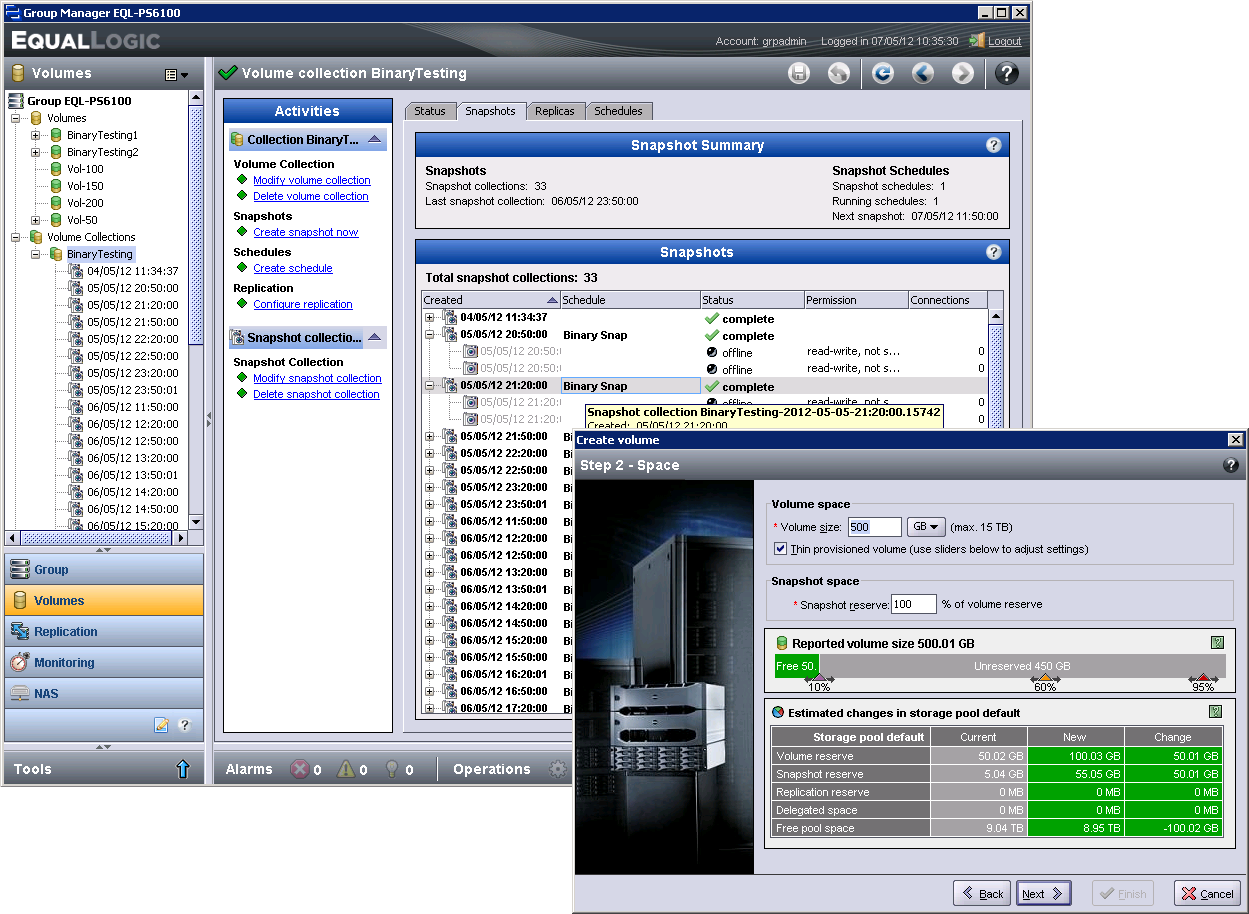
Dell PS6100 - Snapshots schedules
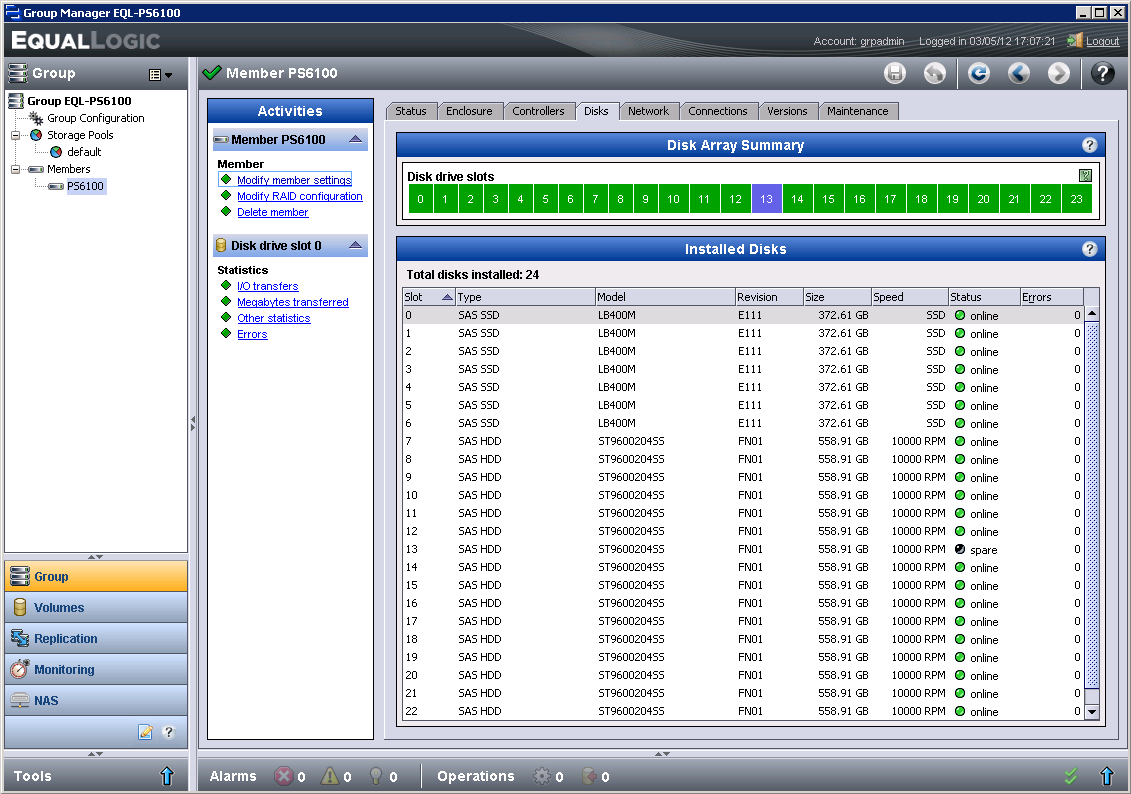
Dell PS6100 - The Group Manager console
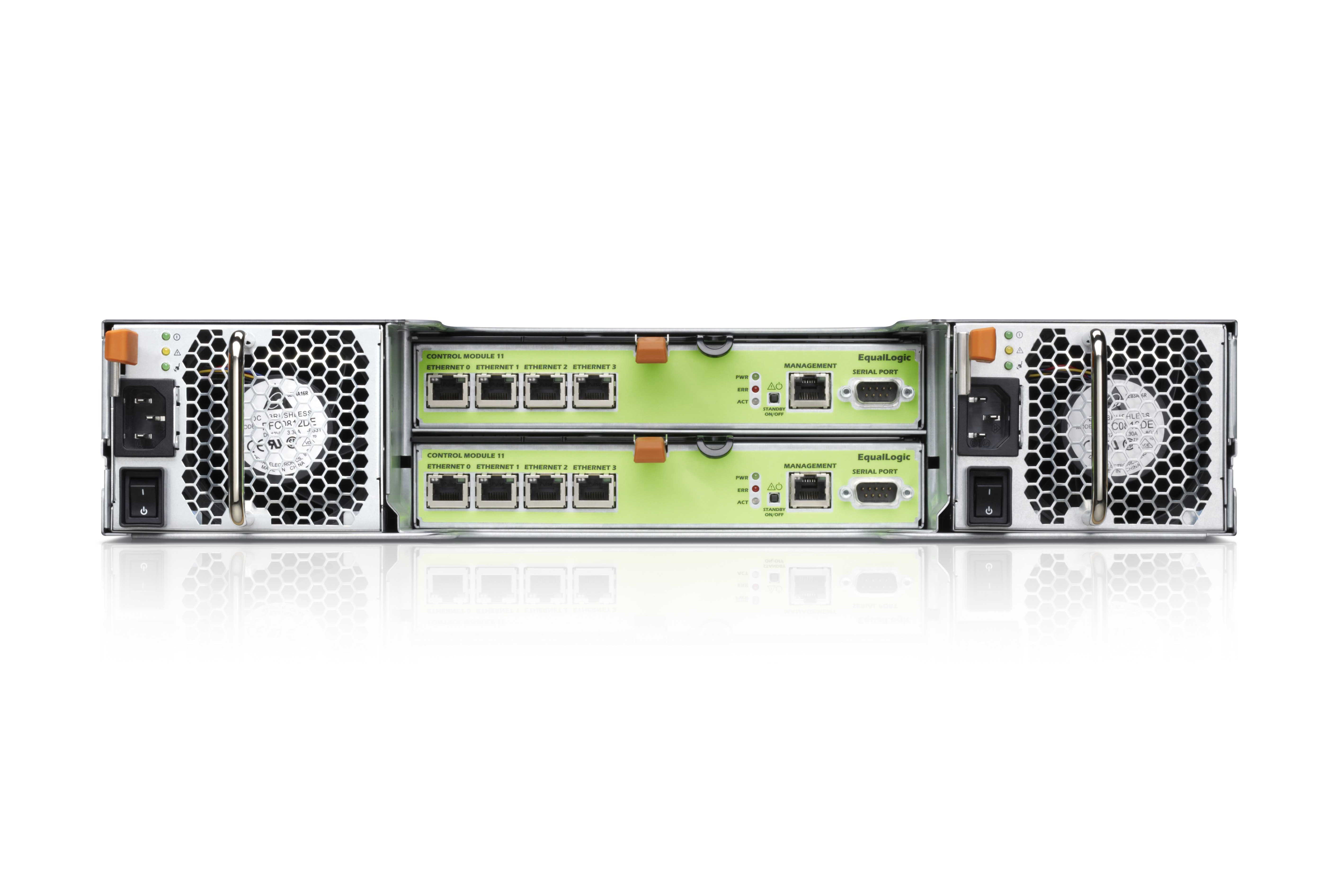
Dell PS6100 - Back
The PS6100XS is one of six new PS6100 appliances introduced by Dell, which use automatic tiered storage and a hybrid array of SSDs and SAS hard disks. It's specifically designed to deliver the high IOPS needed by mission critical databases, VDI and big Exchange servers.
An important change to the entire EqualLogic family is the wholesale move to Dell manufactured hardware. This brings a significant drop in prices and comparing the PS6100XS with the Nimble Storage CS240 (65,540 Ex VAT) puts this in perspective.
Dell has redesigned its controllers which support the new cache-to-flash feature. In the event of a complete failure, a capacitor provides enough juice for the controllers to write their cache contents to flash memory.
The primary controller ports are all grouped under a virtual IP address and load balanced. As you add more appliances to a group, their network ports will join the virtual IP address so increasing available bandwidth.

The controllers in the PS6100XS each have four Gigabit ports and support Dell's new vertical port failover feature
Data tiering
The controllers don't run in the traditional active/standby mode as they use Dell's new vertical port failover. If a port on the primary controller fails, it will use the corresponding port in the secondary controller.
The appliance comes with all drives preconfigured in an accelerated RAID-6 array. Data tiering is fully automated where hot data consisting of 15MB pages is placed on the SSDs for faster access.
Sign up today and you will receive a free copy of our Future Focus 2025 report - the leading guidance on AI, cybersecurity and other IT challenges as per 700+ senior executives
Expansion potential is excellent as up to sixteen appliances can be placed in a group and presented to the network as a logical storage pool. Although each appliance looks after its own RAID arrays, the storage on all members is made available as a single entity.
Volumes created within this space are presented as iSCSI targets but the volume data is spread across up to three group members which are chosen at random. This makes it a cinch to add more appliances to a group and they can be removed just as easily as their data is evacuated to other group members.
Dave is an IT consultant and freelance journalist specialising in hands-on reviews of computer networking products covering all market sectors from small businesses to enterprises. Founder of Binary Testing Ltd – the UK’s premier independent network testing laboratory - Dave has over 45 years of experience in the IT industry.
Dave has produced many thousands of in-depth business networking product reviews from his lab which have been reproduced globally. Writing for ITPro and its sister title, PC Pro, he covers all areas of business IT infrastructure, including servers, storage, network security, data protection, cloud, infrastructure and services.
-
 Google is scrapping its dark web report feature — here's everything you need to know and some alternative options
Google is scrapping its dark web report feature — here's everything you need to know and some alternative optionsNews Google said while the dark web report feature offered “general information”, the tool didn’t provide “helpful next steps” for users potentially impacted by a breach.
By Emma Woollacott Published
-
 AI doesn’t mean your developers are obsolete — if anything you’re probably going to need bigger teams
AI doesn’t mean your developers are obsolete — if anything you’re probably going to need bigger teamsAnalysis Software developers may be forgiven for worrying about their jobs in 2025, but the end result of AI adoption will probably be larger teams, not an onslaught of job cuts.
By Ross Kelly Published
-
 JetBrains is mothballing its Fleet IDE service — here’s what developers need to know
JetBrains is mothballing its Fleet IDE service — here’s what developers need to knowNews The Fleet IDE platform will be discontinued later this month and updates will stop
By Ross Kelly Published
